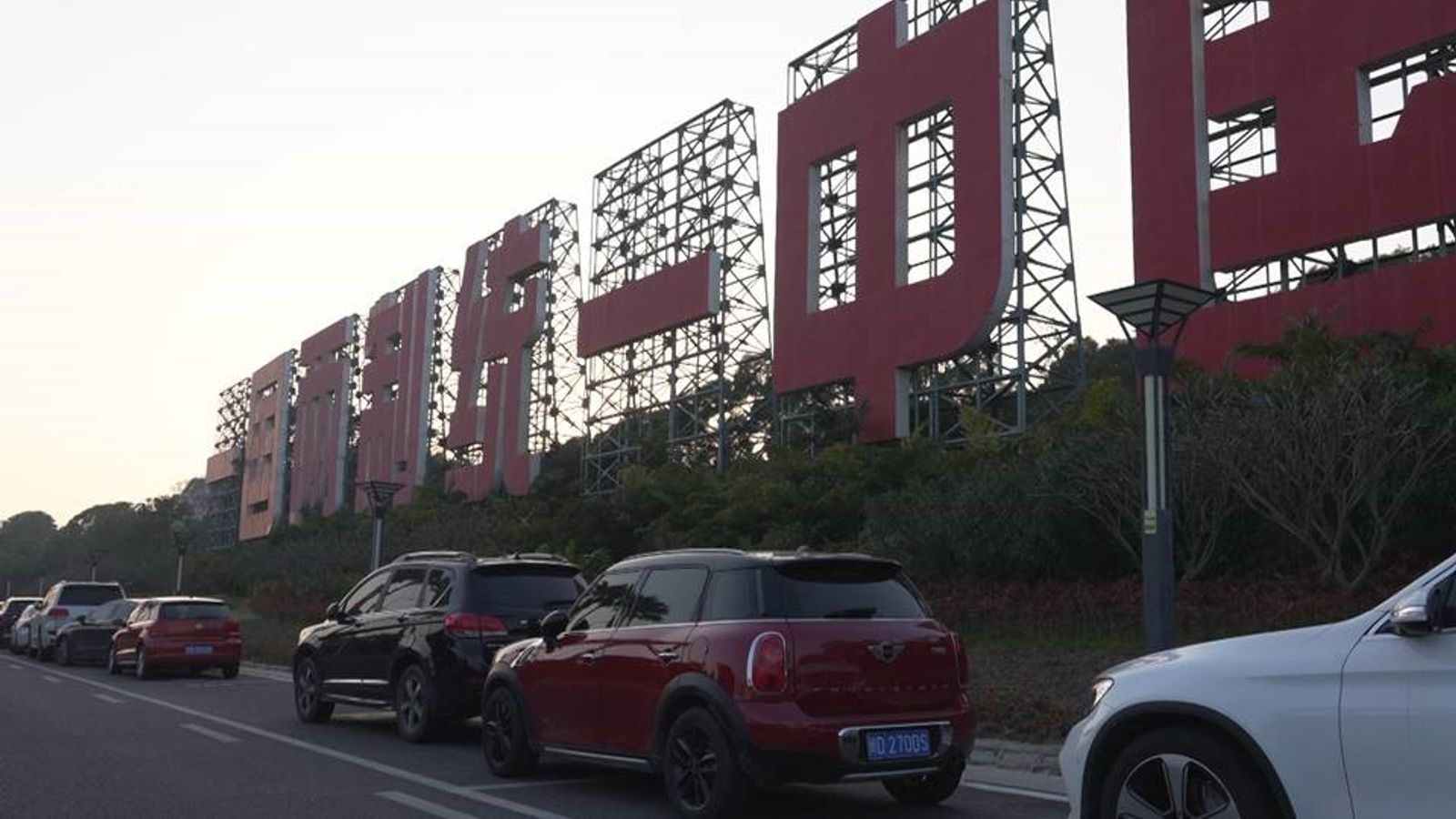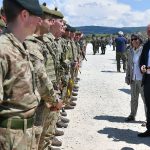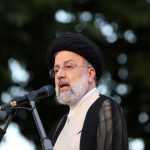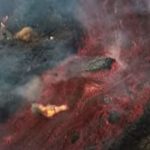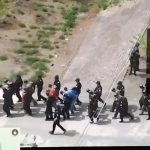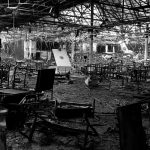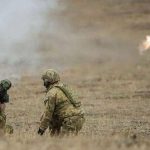The beach in Xiamen, south China, was in a relaxed mode last weekend with families sitting in tents, tour groups taking selfies and beach buggies for hire scuttling noisily along the sands.
All fairly normal, apart from the giant sign behind the beach, facing out to sea, its Chinese characters 30 metres high: “One Country Two Systems Unify China”.
The sign is meant for those on the Kinmen islands, four miles over the water and clearly visible from the beach (locals call this the One Country Two Systems beach).
Kinmen is right on China’s doorstep but is Taiwanese territory. On Wednesday, Taiwan held military drills on other islands close to China.
It described the exercises as routine but, as a result of the war in Ukraine, Taiwan has raised its alert level.
China sees Taiwan as a renegade province that it has a sacred duty to “reunify”, as they describe it, if not by peaceful means, then by using force. It was notable that when China’s top diplomat, Yang JIechi, met US national security adviser Jake Sullivan in Rome earlier this week, he wanted to spend as much time discussing Taiwan as Ukraine.
In Asia, as in Europe, a young democracy sits next door to an authoritarian giant.
China faces its biggest COVID challenge since the dark days of Wuhan
Ukraine war: Has Russia’s invasion dented the friendship that knows ‘no limits’?
Ukraine war: US officials concerned by ‘Russia’s request for military assistance from China’
The Taiwan question
Everyone on the beach was aware of the “Taiwan question” but their opinions captured the ambiguity of China’s current position.
A young man who gave his surname as Liu spoke to Sky News after clambering out of one of the beach buggies.
“China is a country which loves peace,” he said. “I think it’s reasonable to let Taiwan return to the country by peaceful means.
“Because people’s lives are more comfortable. We don’t want war to interrupt our normal lives.”
Mr Du, an elderly man from Nanjing visiting Xiamen for the first time, said he didn’t think China would attack Taiwan yet “because China’s development is being impacted – the US launched sanctions against China”.
But if the DPP – the elected party of government in Taiwan – insisted on independence, “China must unify Taiwan by force,” he said before he went back to posing for pictures on the rocks.
Xiamen has close links to Taiwan. Streets are named after the island, as is a night market. Before the pandemic, tourist groups would hop over to Kinmen regularly and many Taiwanese live in Xiamen.
Please use Chrome browser for a more accessible video player
Complicated by close links between people
Joey Huang works in the travel industry. She is Taiwanese but moved to Xiamen at the end of 2020.
Just as between Russia and Ukraine, the question of conflict is complicated by the close links between ordinary Taiwanese and Chinese people.
Sky News asked her what the Ukraine war meant for Taiwan and China.
She said: “First of all, I don’t think the condition is the same. Second, I am very, very worried about Taiwan, the relationship of Taiwan and mainland.”
Huang said that China could use force – “unfortunately, yes”.
She continued: “But this is my opinion: we are all family. Taiwan people and mainland people, we are all family. And the worst thing is to start a war I think.”
Cross-strait relations at a low point
China describes the DPP as a “secessionist” movement, which aims to declare formal independence, although that is not the DPP’s stated position. It sees US support – and weapons sales – as encouraging the DPP in that ambition.
But China is putting overt military pressure on Taiwan. A giant TV in a square in Xiamen showed the People’s Liberation Army conducting their own drills, in bombastic style. Its air force has despatched scores of aircraft into Taiwan’s air identification zone.
Follow the Daily podcast on Apple Podcasts, Google Podcasts, Spotify, Spreaker
For the foreign policy establishment that studies this issue, Ukraine has already changed the calculation – but for Taiwan, not China.
“We are at the frontline of communication across the strait,” Chen Xiaoxiao, professor of cross-strait relations at Jimei University, told Sky News. “If war happens, we will be at the frontline of the war.
“The situation in Ukraine does make people across the strait know the crudeness of war. That makes us cherish peace more.”
But “Taiwanese people will talk more cautiously about the relationship across the Strait, to avoid the situation of Ukraine happening in Taiwan,” she explained.
“In regards to the PLA military planes flying around the Taiwan islands – I think the Chinese government is putting pressure on the DPP about independence issues.
“We scholars say the Chinese government shows its strength to the Taiwan governments – and shows its benefits to the Taiwanese people.”
Conflict not inevitable
Conflict between Taiwan and China is certainly not imminent, nor is it inevitable and it is hard to imagine the bustling, lively streets of Xiamen as a warzone.
But the same was true of Mariupol and Kharkiv not so long ago.
